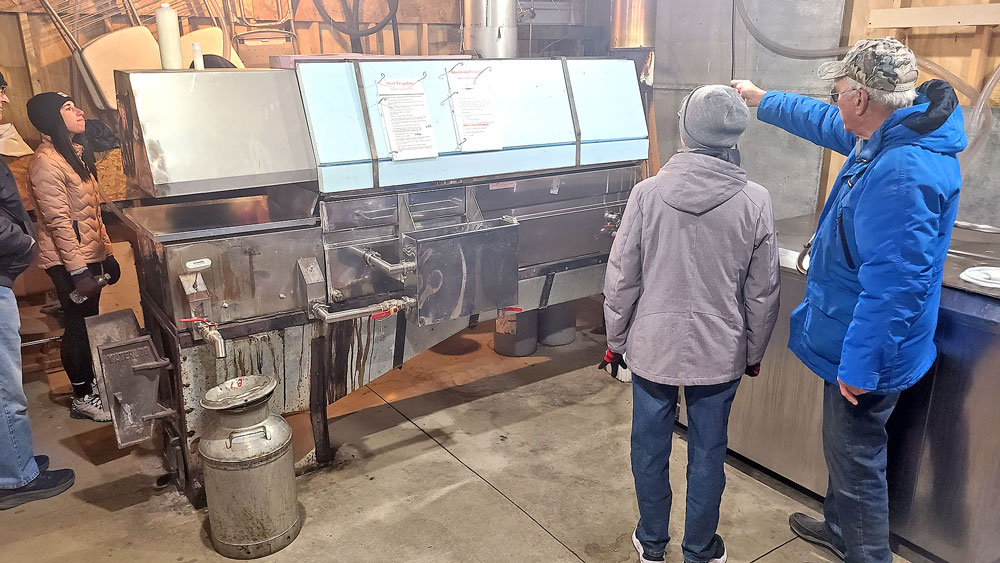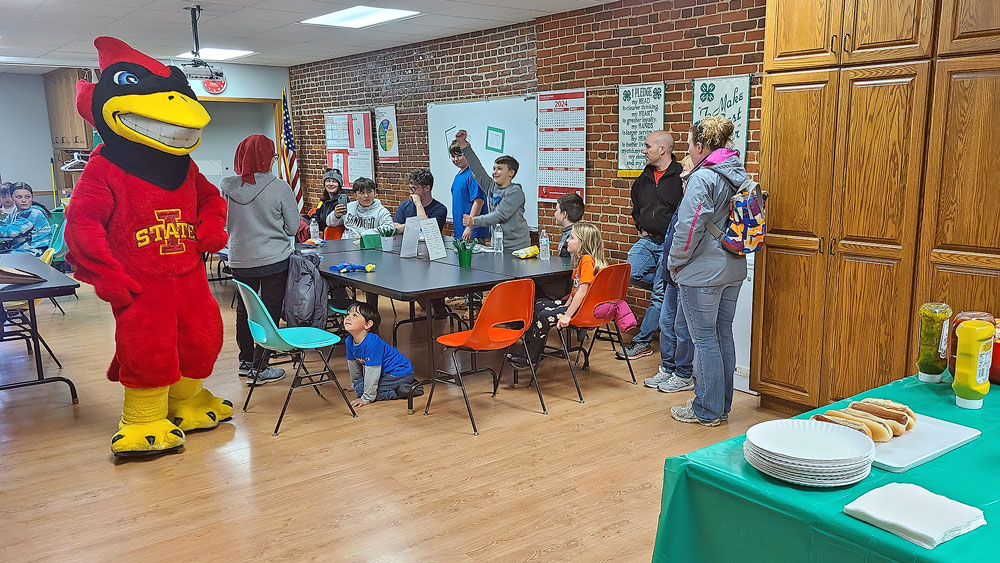Hospital requests $100,000 in county support
By Bob Steenson, bsteenson@charlescitypress.com
For years, Floyd County Medical Center administrators have pointed out that the county hospital is a rarity among Iowa medical facilities in that it receives no county tax dollars to keep it operating.
That distinction may end in the next fiscal year due to a combination of increasing expenses and reduced revenue.
Representatives of the hospital were at the Floyd County Board of Supervisors meeting Monday morning, requesting $100,000 from the county to support the hospital.
The meeting was a planning session, so no official action could be taken, and the county board is still in the middle of budget considerations for the upcoming fiscal year that will begin July 1.
Medical Center Administrator Rod Nordeng and Chief Financial Officer Ron Timpe presented their case to the supervisors.
Timpe said that fiscal years 2015 and 2016 showed a net of more than $1 million each year in revenue over expenses, but that the net margin in fiscal year 2017 was less than $5,500. Adding in non-operating revenue such as interest and contributions raised last year’s “profit” to only $31,000.
“Our struggles continue with more and more outside uncontrollable circumstances impacting our operations in a negative way,” according to a letter from the hospital to the supervisors that was presented by Timpe and Nordeng.
Timpe said there are a number of positives, including the hospital’s new surgeon, Dr. Angela VanGilder, representing a 21 percent increase in surgery cases; emergency room visits up 16 percent; laboratory tests up 6 percent; patient days up 17 percent; and the hospital purchased $1.6 million in capital assets.
The increase in emergency room visits is double-edged, though, Timpe said.
“Unfortunately, some of the patients who utilize our ER, really, it’s not emergency cases,” he said. Some people utilize emergency care as their primary health care, knowing that by law the hospital cannot refuse them.
“Federal regulations state that once an individual sets foot on our campus and announces they need or want medical care there are steps we have to take to treat and triage them,” Timpe said.
The hospital spent $1.277 million last fiscal year staffing the emergency room 24 hours a day, seven days a week, he said.
The hospital has lost about $180,000 to $200,000 in federal reimbursements because of the continuing 2 percent federal sequestration spending cuts, Timpe said, and has lost $225,000 in reimbursements from the state because of lower payments, delays in payments and services being not allowed after the fact through the state’s new privately managed Medicaid system.
As an example, he said, the different managed care organizations came back to the hospital six or eight months after care was given and said they had examined patients’ records and determined some of the care had not warranted emergency room care, so they demanded those payments be returned.
“They kind of change the rules right in the middle of everything,” he said.
There was also about a $126,500 reduction in reimbursement for the Meals on Wheels program which is provided by the hospital.
Timpe said the $100,000 request amounts to about $6 per resident of Floyd County.
The state average of county hospitals, not including Broadlawns Medical Center in Des Moines, is $1.35 million per year in county funding, an average of almost $82 per resident, according to information provided to the supervisors by Timpe and Nordeng.
Of the county hospitals in counties closest in size to Floyd County, the average annual county support is $1.48 million or about $93 per person.
“It isn’t easy for us coming forward asking for $100,000,” said Nordeng,who became the medical center administrator last August.
“It’s a great medical center,” he said. “We started a foundation last fall to try to build up some reserves for the future, but that’ll take years to get where that needs to be.”
He said the hospital continues to make investments in technology and services to serve Floyd County residents,.
“This month we’re in the process of going from a 32-slice CT in our radiology department to 64-slice. We have a 3-D mammography. We just opened two new therapy rooms upstairs,” he said.
Floyd County Supervisor Chairwoman Linda Tjaden said, “We’re fortunate that we have the Floyd County hospital. We appreciate it. I hate to think what it would be like if we didn’t.”
Supervisor Mark Kuhn asked to see more complete financial statements including balance sheets as the supervisors consider the request and continue with budgeting.
Also at the meeting Monday:
- Sergeant Travis Bartz of the Floyd County Sheriff’s Office presented a request for funding for new body cameras, in-car cameras and in-car data stations for county deputies.
The deputies currently have body cameras, but do not have cameras in the cars that record video of what happens in front of the cars or inside the cars..
The data stations — essentially car-mounted laptops or tablets with keyboards — would increase efficiency by allowing deputies to file and print accident reports or traffic citations at the scene, rather than having to write them out by hand then type them and file them back at the office.
With 550 square miles to patrol in the county, staying out on patrol instead of spending time in the office is a benefit, he said.
Bartz presented several options to purchase the equipment over several years. The total price to purchase everything requested at once would be $132,535.
- Heard a request from the Floyd County Historical Society for $5,000 to be used toward a kiosk at the Floyd County Museum to present material to coincide with the 50th anniversary of the tornado that devastated the community on May 15, 1968.









Social Share